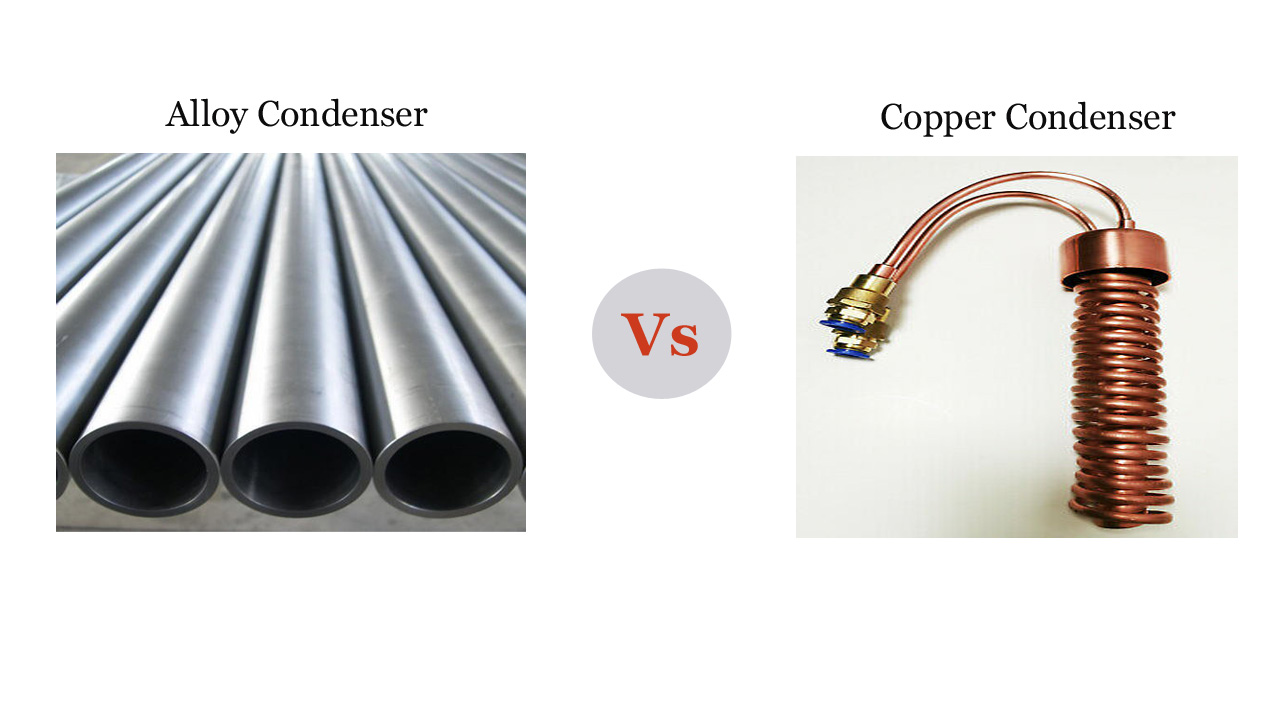The cold, refreshing air comfort is only a switch away during the sweltering summer months. With a simple crank of the air conditioner, you’ll be breathing in the cool air in no time at all. Aside from the different aspects that influence which kind of air conditioner is superior, there has long been a controversy over whether the type of coil is superior – copper or alloy– in terms of efficiency. To comprehend the significance of these coils within the air conditioning process, let’s first look at their advantages and disadvantages.
What is a Condenser in AC?
The condenser section of the HVAC system is critical in maintaining a pleasant home environment. The inner unit of the system draws heat from the air in your house, while the condensing unit is in charge of discharging that heat into the surrounding environment. Since it was heated and squeezed at high pressure by the compressor, the refrigerant put in the condenser would be in the form of vapour even at an elevated temp. During the passage through the condenser wall, the refrigerant converts from its initial state of vapour to liquid with the assistance of water and air to eliminate the heat while maintaining the pressure of the refrigerant.
What is an Alloy condenser?
In this case, an alloy condenser refers to a device constructed of much more than two metals at the same time. Each of the three types of copper alloy is used in its way. The other two types are used in conjunction with each other. Copper is typically the best condenser material in its purest form, but as the purity of the copper grows, the cost of the product rises, as do the risks of copper oxidation, which affects the life of the condenser coil. Thus, copper alloy is employed in condensers to eliminate this problem while simultaneously improving the mechanical strength of the equipment.
Advantages
- As a result, it is much less expensive than other metals such as copper, which provides an economic benefit.
- The alloy coil is almost as effective as a conductor when the conductivity is high.
- The fact that it is more flexible makes producing in big numbers much simpler.
Disadvantages
- Because of this, it has a shorter lifespan.
- When compared to copper AC, there is less heat transmission.
- You cannot repair aluminium coils; the only alternative is to replace them.
- The term copper condenser is used to describe a device that condenses copper.
What is a Copper Condenser?
This coil is constructed of copper and is responsible for retaining the refrigerant in a liquid state throughout its operation. The compressor raises the pressure of the gas being transported. Condensation occurs as a result of this, and the gas becomes a liquid. As the refrigerant transitions from its gaseous to liquid form, the heat that something contains is released. Because the heat is diffused outside, it is not as uncomfortable. When the liquid refrigerant returns to its original location, the cycle is restarted.
Advantages
- It is significantly more efficient to get an air conditioner with a copper coil in the condenser since it will cool your space quickly.
- It has been shown that copper condensers are much more durable than alloys condensers in terms of lifetime.
- Copper condensers are significantly more robust and energy-efficient than alloy condensers are.
- After 2 to 3 years, the copper condenser loses its 5-star certification and decreases to a 3-star rating, resulting in a net loss of efficiency.
Disadvantages
Even though copper condensers are more effective than alloy condensers, copper is more costly than aluminium; thus, not everybody can afford it since money is a significant factor in life.
Alloy Condenser Vs Copper Condenser
| Attributes | Alloy condenser | Copper condenser |
| Flexibility | Highly flexible | Less flexible |
| Environment-friendly | Highly environment friendly | Less environment-friendly |
| Corrosion-resistance | Has weak resistance against corrosion | Is highly resistant to corrosion |
| Durability | Has lesser durability | Is highly durable |
There are no second chances when it comes to your air conditioning system. Because of this, you are unwilling to take any risks when purchasing an air conditioner.
The coil element is one of the qualities you may consider while making a buying selection.
1. Flexibility
When compared to copper, the alloy has more malleability. You have complete freedom to design it any way you want! According to statistics, to get the same size and form of alloy coils, three times the amount of copper is needed! As a result, it may be rather expensive.
In certain cases, producers have discovered a technique to get around this problem by thinning the copper coils. As a result, aluminium outperforms copper with flexibility by a wide margin!
When it comes to metal, tensile strength is the yardstick by which it is judged for malleability. The point at which a wire will break under strain is commonly identified. Cupro-nickel is stronger than alloy when it comes to tensile strength.
Therefore, when comparing copper to aluminium, it is necessary to use greater force to get the correct form. It follows that copper-based appliances will have a higher production cost. For example, a copper-coil air conditioner will be more expensive to operate than an air conditioner with alloy coils, according to the manufacturer.
2. Environment-Friendly
Copper and alloys are both highly readily recyclable metals; copper mining, on the other hand, is not exactly an environmentally friendly process. This is because many acidic gasses are produced, which may potentially harm crops, decrease soil quality, and cause structural damage. In contrast, the alloy is considered greener because of its low cost, easy availability, long life, and durability.
In addition to using a condenser, the incorporation of inverter technology into an air conditioning unit contributes to the device’s environmental friendliness. Inverter air conditioners are energy efficient and utilize the least amount of electrical energy possible following the temperature settings. Here is where you can learn more about inverter vs non-inverter air conditioning units.
3. Corrosion
Last but not least, copper metal could withstand corrosive environments for a much longer period than alloy metal. Because of this, it needs fewer repairs and maintenance, which is particularly important in locations with high levels of dust and pollution and places with sewage odours, among other things.
While these are some of the advantages of using a copper condenser over an alloy condenser, there’s many more, including durability, dependability, environmental friendliness, and so on.
4. Durability
When opposed to copper, the alloy is not known for its long-term durability. Alloy coils must be replaced; however, copper condensers may withstand the effects of wet weather, moisture, water, and air while working well, provided they are maintained properly. It is easily fixed and repurposed, and it does not need a great deal of replacement to function well. In terms of durability, copper outperforms alloy hands out!
Conclusion
Given the abundance of brand-new technologies available in the marketplace, selecting an air conditioner with the appropriate condenser type might be difficult for most people. We’re not sure which one will be the greatest match for us to begin with. But with the excellent advice and pros and cons stated for every factor when comparing the alloy and copper condensers, you will be able to quickly make the best decision for your family and what will be an amazing match for you.

